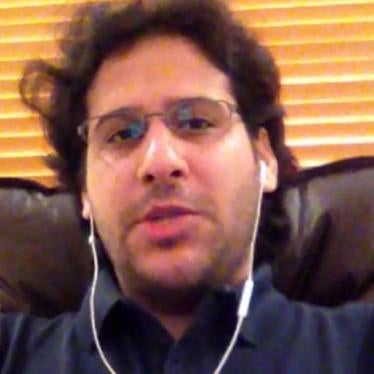After the overthrow of Hosni Mubarak in February 2011, I sometimes wondered how things would have looked if his generals had tried to defend his 30-year regime.
Now I know.
Cairo is a city under the military gun. Soldiers man checkpoints scattered on main streets. Police vans and riot squads hide in back streets. Supporters of the new order run rampant, in organized — if you can call it that — groups seemingly under the command of teenagers who appear to have an excessive affection for swords.
State television runs endless loops of patriotic videos featuring the national anthem and fresh-faced preteen kids frolicking in weirdly litter-free streets, a rarity in Cairo.
And then, there is the killing. On Tuesday, according to official sources, at least 635 protesters led by the Muslim Brotherhood were killed, mainly at the hands of police, in Rabaa al-Adawiya Square in east Cairo and Nahda Square near the Cairo Zoo, as well as in other parts of the city and other towns. Presumably in 2011, the army was trying to avert such violence when the generals decided not to storm the tens of thousands of protesters in Tahrir Square but, instead, deposed Mubarak and claimed to set Egypt on a democratic transition.
What changed?
One element was many Egyptians’ accumulated resentments and fears under Muslim Brotherhood rule. Another may be the ambitions of the military generals.
One thing is clear: Egypt has consistently failed to take human rights seriously.
After Mubarak fell, the army ruled from February 2011 to June 2012, supposedly to mediate among the newly empowered political forces. It didn’t take long for abuses to surface, most with echoes of the Mubarak past: military trials of civilians, crackdowns on free expression, torture, deadly assaults on civilians protesting military rule.
Mohamed Morsi, the candidate from the Muslim Brotherhood’s Freedom and Justice Party, won Egypt’s presidential elections and took office in June 2012. It was a new era, but the battering of human rights continued, among them: prosecutions of journalists; unleashing of pro-Brotherhood gangs on demonstrators; perpetuation of military trials; and new laws that permitted detention without judicial review for up to 30 days. Morsi also opted last year to make his own decrees exempt from legal review. If his edicts violated human rights, victims would have no means to challenge the law.
Brotherhood leaders have lashed out at Christians for both Morsi’s ouster and the current violence, with the result that pro-Brotherhood mobs in several towns and cities have attacked Christians and burned their churches.
The head of Egypt’s armed forces, Gen. Abdel Fatah al-Sissi, deposed Morsi on July 3 after huge demonstrations against the president a few days earlier. The coup revived the army’s long-standing, self-declared role of savior of the nation. Even before Tuesday’s bloody violence, excessive and deadly force in dealing with protesters marked Sissi’s new Egyptian order.
During a clash between police and rock-throwing protesters on July 27, 74 Morsi supporters were killed. Many of the dead were shot in the head and upper body, suggesting targeted killings rather than genuine crowd control.
Egypt’s unhappy past seems to be an inescapable prologue. In 1952, an Egypt in chaos prompted the army to overthrow an unpopular king and set the nation onto a path toward something better. That “better” has been more than 60 years of military rule, with attendant and persistent human rights abuses. It’s hard not to see the current upheaval leading the country further down the same road.
Human rights groups in and outside Egypt will appeal to the country’s rulers to protect free speech, freedom of assembly and freedom from arbitrary arrest and wanton killing. But to whom can those appeals be addressed with any effect when human rights have degenerated over the past two and a half years into a kind of situational convenience — useful when you and your allies are the victims of killings, beatings and gassings, but shunted aside when your political enemies bear the brunt of abuses.
Only a few months ago, Morsi dismissed anti-government protesters as thugs and unleashed police violence on them. Morsi’s government was also noticeably lax in responding to violent attacks on Christians, Shiite Muslims and other religious minorities. Now the Muslim Brotherhood laments a massacre of its followers at the hands of police and “real” thugs. For a year and a half, demonstrators in Tahrir Square called for an end to military rule and suffered beatings, arbitrary arrests and torture. Now many are lauding the military’s ferocious crackdown on Brotherhood supporters.
Oddly in a country as old as Egypt, memories seem very short. That’s not good news.






